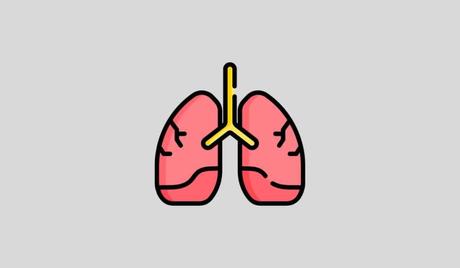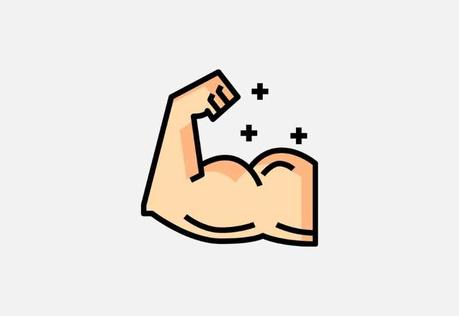Can probiotics improve athletic performance? Yes—here are eight reasons that athletes should supplement with probiotics.

Did you know that the vast majority of the immune system is located in our gut?
It comes as no surprise, then, that probiotics can help boost immune function, maintain a healthy gut, speed up recovery from fatigue, and overall health.
While many people commonly associate bacteria with negative immune effects, probiotics are a different animal.
If you’re an athlete, the benefits are definitely worth checking out if you’re serious about amplifying your performance and keeping yourself in tip-top shape.
In this article, we will take a full look at the benefits of probiotics of athletes.
Let’s jump in.
Probiotics – What Are They?
To understand the benefits of probiotics, we first need to clarify what they are.
Probiotics are described as “live food ingredients that are beneficial to the health of the host” which “naturally occur in fermented food products such as yogurt, kefir, sauerkraut, cabbage kimchee, soybean-based miso, and natto”.
These are just a few food examples, however. We’re not just limited to these foods regarding probiotics.
There are also various types of bacteria classified as probiotics.
Each has slightly different benefits, and most come from either Lactobacillus and Bifidobacterium.
Lactobaciullus is the most common, and you’ll find it in yogurt and other fermented food products.
Various strains can help those who are lactose-intolerant, as well as those who have trouble with diarrhea.
Bifidobacterium can be found in certain dairy products, and are known to help people fighting Irritable Bowel Syndrome (IBS) and other digestive issues.
These can help your gut balance the right quantity of “good bacteria”.

Various health benefits have been documented by consuming these probiotics, with the most notable being improved gastrointestinal tract function, immune function, reduced risk of developing hyperlipidemia, hypertension, and allergies.
Latest research even suggests that a large percentage of health issues start in the gut.
While diet has the biggest impact on the quantity and type of microbes in our gut, many of our guts help breed “bad bacteria”.
For example, a Western Diet that contains a large amount of fat, added sugars, and low fiber can actually weaken the gut barrier and help foster a pro-inflammatory gut environment1.
Multi-strain probiotics taken on a daily basis have been shown to improve gut barrier strength, among offering other benefits2.
Benefits of Probiotics for Athletes
Now, how does this all relate back to you – the athlete?
1. Calms Nerves
You probably already know that your gut is always “communicating” with your brain.
Worrying can give you a stomach ache, but did you know that poor gut health could lead to feeling anxious and frustrated, too?
These feelings can severely impact athletes’ performance. It can mean the difference between silver and gold.
The gut plays a big role in healthy metabolism, immunity, and brain.
Yet our gut microbiome fluctuates easily from all kinds of factors that we encounter all the time.
This means that keeping it healthy isn’t always easy – even if you’re always active.
2. Reduced Risk of GI and Respiratory Complications
Probiotic supplementation has been shown to be effective in lowering risk of developing respiratory and GI complications during high-stress periods.
Which matches up with life as an athlete—when you’re training and competing, you’re putting yourself in high-stress situations.
Did you know that upper respiratory tract infections (URTI) account for up to 65% of illnesses with athletes?
For the majority of sports, diminished respiratory performance is going to have a big influence on athletic performance.
For example, if you’re a sprinter or swimmer, you’re using a large part of your lung capacity.
Under high-stress situations like competition, even more so.

Now imagine you have a URTI. How will you perform with a tight chest and difficulty breathing?
The good news is that probiotic supplementation can help.
They can lower your vulnerability to illness and even reduce the number of URTIs you experience!
If you experience GI issues like IBS, it could be due to serious physical activity.
Why?
Because intense exercise can redirect blood flow from your organs to the muscles.
This can cause IBS symptoms like diarrhea. Elite runners encounter this symptom more than any other digestive issue.
The Saccharomyces boulardii strain works wonders in helping reduce these symptoms, along with bloating.
For bodybuilders, bloating is quite common due to high protein intake, and supplements that may not sit well.
3. Reduced Inflammation
Inflammation is a big one, especially in athletes.
With heavy training schedules and intense competitions, athletes experience low levels of inflammation almost constantly.
This puts our immune systems on a certain level of “alert” for extended periods of time.
Eventually, this long-term stress can lead to complications and adverse effects.
See also: Are Probiotics Good for Weight Loss?
For example, chronic inflammation has been linked to heart disease, arthritis, and even depression.
Serum C-Reactive Protein (CRP) is used as a biomarker for inflammation.
However, probiotic supplementation could actually lower CRP levels! While more research is needed, it’s definitely promising.
4. Build Muscle
Many athletes are looking to build muscle, and while that’s mainly dependent on proper nutrition and training, probiotics do play a role.
It’s been suggested that supplementing with probiotics can aid the body in absorbing vitamins and nutrients into the bloodstream, including protein.
Moreover, probiotics help trigger production of digestive enzymes, which further helps digest and absorb proteins.

Theoretically speaking, this means that probiotics could help us maximize our protein intake by enhancing protein absorption.
Also, if you’re someone who avoids protein shakes and powders due to them irritating your stomach, probiotics could help ease the resulting gastrointestinal maladies.
5. More Energy
What athlete wouldn’t like more energy to run down the field or to hit a home run?
Well, it’s been suggested that probiotics can help with B vitamin production which are crucial to energy production.
Keep in mind that Lactobacillus reuteri has been shown to produce B12 quite effectively, which helps nourish the brain, nervous system, and helps produce healthy red blood cells.
6. Stronger Immune System
All athletes, but particularly endurance athletes, are more prone to colds, URTIs, and digestive problems.
This is because endurance athletes must undergo lengthy, strenuous training programs in order to participate and do well in their sport.
This can suppress the immune system, leaving them more vulnerable to catching both bacterial and viral infections.
Looking for a proven probiotic that can help speed up weight loss and improve gut health? BioFit Probiotics is one of my favorites. It’s a multi-strain probiotic with clinically-proven strains to improve gut health and help reduce fat stores.
This could have a negative impact to your training schedule, and thus, how you perform at gameday/race day.
Probiotics can help create a healthy balance of good bacteria in the cut to help keep your immune system strong and minimize the risk of illness.
7. Increased Workout Recovery
Any athlete knows the importance of recovering from an intense workout, practice, or game.
Proper recovery is essential to feeling good, keeping energy levels high, minimizing injury risk, and more.
The probiotic Bacillus coagulans has been shown to reduce exercise-induced muscle damage and speed up recovery.
Some research even suggests that certain strains can help break down lactic acid, reducing muscle fatigue.
Imagine the competitive edge of training as much as your competitor, but having less fatigue?
8. Mental Health
As previously mentioned, the gut and brain are directly connected – commonly referred to as the “gut-brain axis”.
Some research has shown that probiotics can improve mood and cognitive function.
In fact, a study back from 2016 published by Frontiers in Aging Neuroscience found that Alzheimer’s patients who drank milk with 4 probiotic bacteria species for over 3 months scored better on cognitive tests compared to those who only drank “regular” milk.

Once again, this is an area that needs more research to solidify this connection.
However, considering the direct link between the stomach and brain, it only makes sense that improving the health of one would improve the health of the other.
While probiotics may not have direct benefits for athletic performance, the secondary benefits that they do provide can be a big game-changer.
It’s important to remember that to seek full benefits from probiotics, they must be supplemented consistently and over a longer amount of time.
Not only that, but in order to have a healthy gut, it takes more than just probiotic supplementation.
Your diet must also promote a healthy gut, as what we eat plays such a big factor in it.
The Bottom Line
While more research should (and will) be done in the arena of gut health and probiotics, the research we do have is very promising.
By following a consistent probiotic supplementation routine, you can expect improved protein digestion/absorption, increased vitamin B levels, improved immunity, reduced digestive issues, and more.
The potential is so high, that it’s worth looking into probiotics today.
Your guts, and your performance on the court or field, will thank you.
More Guides Like This
8 Science-Backed Health Benefits of Probiotics. From weight loss and a stronger immune system to better gut health, here’s a detailed look at the top health benefits of probiotics. Engage the bacteria!
How Long Does it Take for Probiotics to Work? Wondering if your probiotics are working? Or how long it’s going to take for them to start working? Here’s a detailed look at how long it takes for probiotics to work, signs they are working, and how to get more from your probiotics.
